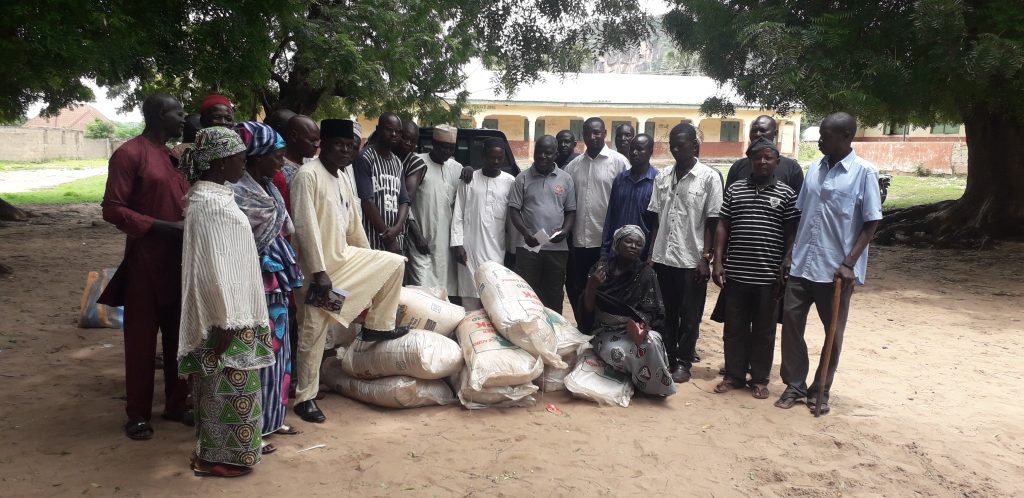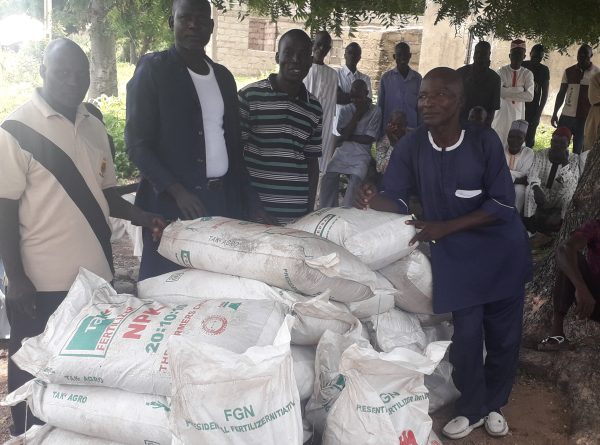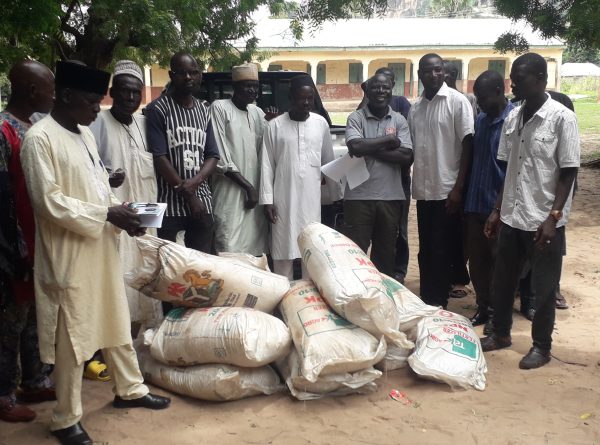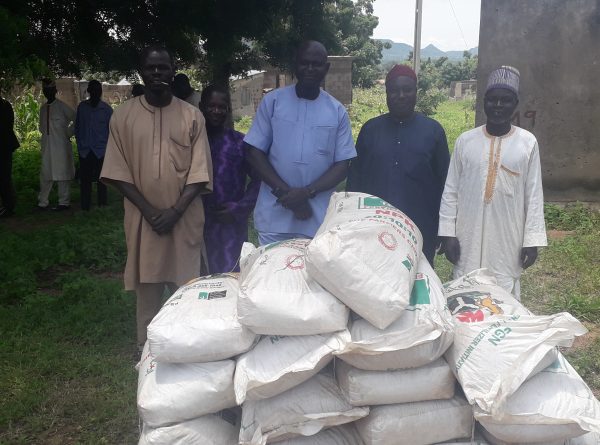Fertilizer Distribution

All effort to make available the forms of blend to both small scale and commercial farmer still run to short hands.
Agriculture
There are currently over 30 functional fertilizer blending plants in Nigeria that blend various types of fertilizers, even though some of the blends such as NPK 15-15-15 are still largely imported by both blenders and commercial farmers. Blending in Nigeria was started when the Government invested in the first urea plant on the Sub Continent (NAFCON now Notore) and in a 500,000 MT blending plant. With urea distribution centralized and controlled, States could have flexibility in formulation and cost of blends if they set up blending plants. A number of States and private investors set up blending plants between 1986 and 2006. The predominant blend was 20:10:10. In the early 1990s, Golden Fertilizer (FMN) started experimenting with 15:15:15 (compound), and subsequently ss27:13:13 (blends) in a bid to improve the nutrient level offered to farmers and also to differentiate their products from common blends.
Agricultural Empowerment
Empowering individual in every aspect of life is one of the foundation core activities regardless of gender.
The foundation sees the need to boasting farming activities in the pilot local government Areas of the state, which is Gombe South. looking at the quantity of the fertilizer (200bags) it was then concluded that a location should be pick at a random. so, Ture Ward of Kaltungo west was picked and a plan was drawn for two hundred (200 bags) of fertilizers to be distributed. Among the beneficiaries are the clergies, ward heads and indigenes of Ture Pandi, Ture Okra, Ture Mai, Ture Okwaldi, Ture Balam, Ture Berberai, Mai Unguwan Fulani, and Ture photipo.
Addressing the beneficiaries Mr. Alpha Shilong, the Chief Operating Officer of the foundation, however, encouraged farmers to engage more in massive agriculture production to cater for the needs of Nigerians as there was restriction on food importation.
“I will like to task our farmers on massive food production, as you are aware there is more restriction on food importation which will benefit our local farmers because Nigerians now depend on local production for consumption.”
The foundation sees the need to boasting farming activities in the pilot local government Areas of the state, which is Gombe South. looking at the quantity of the fertilizer (200bags) it was then concluded that a location should be pick at a random. so, Ture Ward of Kaltungo west was picked and a plan was drawn for two hundred (200 bags) of fertilizers to be distributed. Among the beneficiaries are the clergies, ward heads and indigenes of Ture Pandi, Ture Okra, Ture Mai, Ture Okwaldi, Ture Balam, Ture Berberai, Mai Unguwan Fulani, and Ture photipo.
Addressing the beneficiaries Mr. Alpha Shilong, the Chief Operating Officer of the foundation, however, encouraged farmers to engage more in massive agriculture production to cater for the needs of Nigerians as there was restriction on food importation.
“I will like to task our farmers on massive food production, as you are aware there is more restriction on food importation which will benefit our local farmers because Nigerians now depend on local production for consumption.”



THE ESSENCE OF THIS PROJECT
• Is to encourage small scale farming, support and encourage our local farmers to focus on agriculture as a means of livelihood.
• Also help to eradicate the causes of poverty, strive to achieve equality, dignity and freedom for all, regardless of faith or nationality, and are part of a wider movement for social justice.
• Also help to eradicate the causes of poverty, strive to achieve equality, dignity and freedom for all, regardless of faith or nationality, and are part of a wider movement for social justice.
